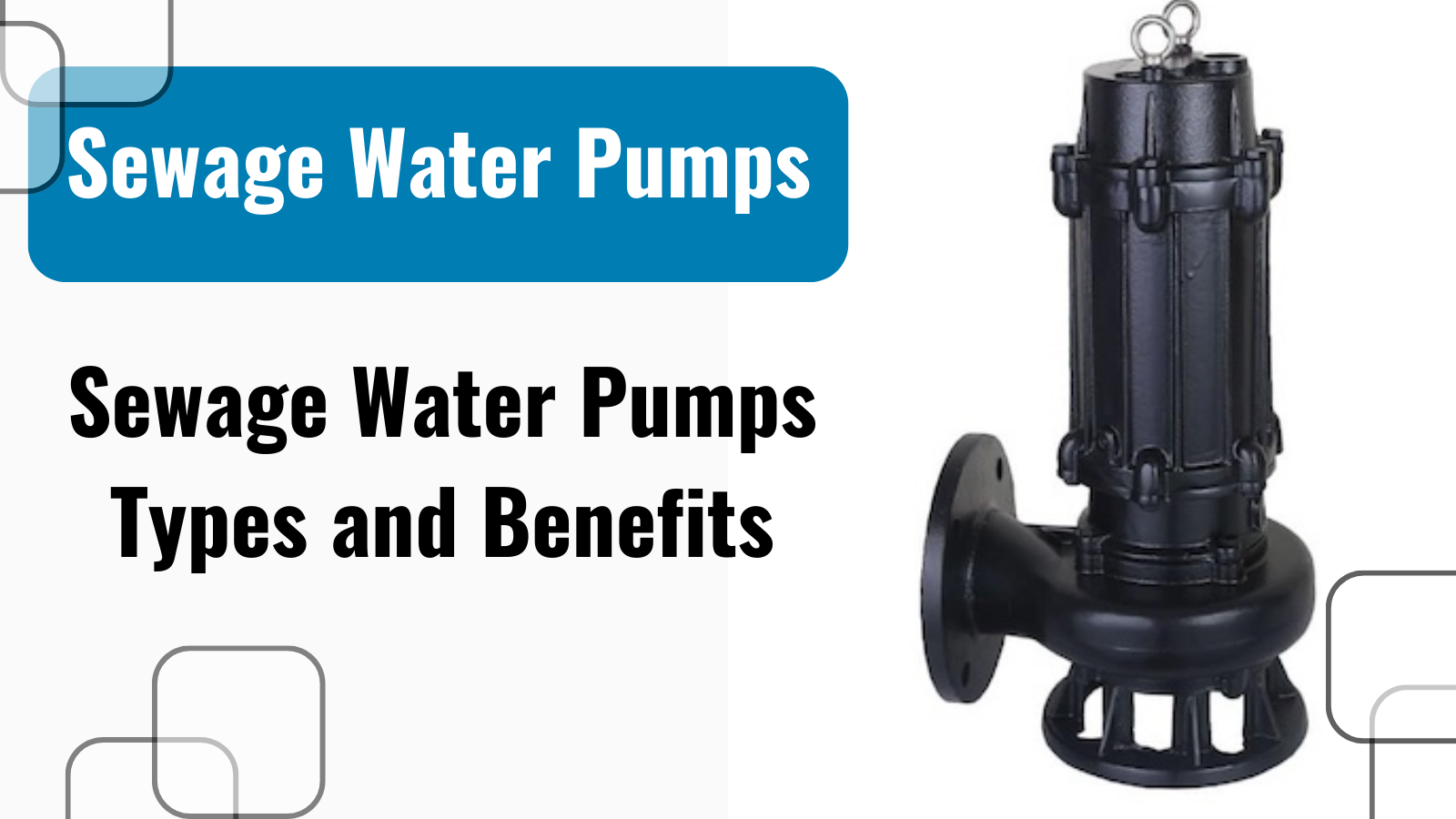Understanding Sewage Water Pumps: Types and Benefits
Sewage water pumps are essential tools in managing wastewater and keeping our communities clean and healthy. These pumps play a crucial role in transporting sewage from homes, businesses, and industries to treatment plants where it can be properly processed and disposed of. In this article, we'll explore what sewage water pumps are, the different types available, and the benefits they offer.
What is a Sewage Water Pump?
A sewage water pump, also known as a sewage pump or wastewater pump , is a device used to move sewage or wastewater from one location to another. These pumps are typically installed in sewage systems, septic tanks, or wastewater treatment plants. They work by creating pressure or suction to transport the sewage through pipes to its destination.
Types of Sewage Water Pumps:
- Submersible Sewage Pumps: These pumps are designed to be submerged in sewage or wastewater. They are highly efficient and suitable for applications where space is limited or where the sewage needs to be lifted from a deep underground location.
- Pedestal Sewage Pumps: Unlike submersible pumps, pedestal sewage pumps are installed above the sewage or wastewater. They are often used in applications where the sewage needs to be lifted from a shallow depth or where maintenance access is required.
- Grinder Sewage Pumps: Grinder pumps are equipped with rotating blades or macerators that shred solid waste into smaller particles before pumping. They are ideal for handling sewage with large solids or tough materials that could clog traditional pumps.
Benefits of Sewage Pumps:
- Efficient Wastewater Transport: Sewage pumps ensure efficient transportation of wastewater from homes, businesses, and industries to treatment plants. This helps prevent sewage backups, overflows, and environmental contamination.
- Reliable Operation: Modern sewage pumps are designed for durability and reliability, ensuring continuous operation even in challenging conditions. This reliability is crucial for maintaining sanitation and preventing public health hazards.
- Cost-Effective Solution: Investing in a sewage pump can save money in the long run by preventing costly repairs due to sewage backups or overflows. These pumps also help minimize maintenance requirements, reducing overall operational costs.
- Environmental Protection: Proper sewage management facilitated by sewage pumps helps protect the environment by preventing pollution of water bodies and soil contamination. By transporting sewage to treatment plants, these pumps contribute to the safe disposal and treatment of wastewater.
- Versatility: Sewage pumps are available in various sizes and configurations to suit different applications and environments. Whether it's a residential septic system or an industrial wastewater treatment plant, there's a sewage pump solution to meet the specific needs of any situation.
Conclusion
sewage water pumps play a vital role in managing wastewater and maintaining public health and environmental safety. By understanding the types and benefits of sewage pumps, sheds light on their indispensable role in sanitation and wastewater management. At Sanas Engineering , recognizing the diverse needs of our clients, we prioritize offering comprehensive solutions tailored to their requirements. By understanding the nuances of sewage pumps and their advantages, we ensure efficient and reliable systems that uphold sanitation standards and contribute to environmental protection. Trust Sanas Engineering for expertise and innovation in sewage water pump solutions, promoting cleaner and healthier communities.

